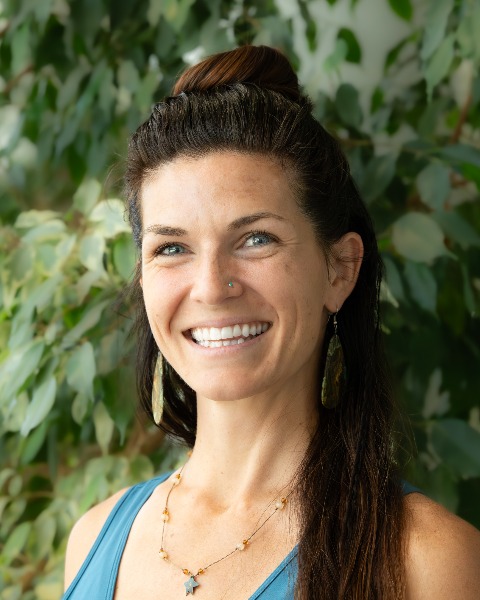Poster Presentation
Leadership, Mentoring, and Training the Next Workforce
Wednesday Poster Power Hour
WED-042 - Lessons Learned from Facilitating a Summer Public Health Program for Navajo High School Students
Wednesday, April 16, 2025
12:30 PM - 1:30 PM PST
Location: Pacific I/II, 2nd Floor
Area of Responsibility: Area IV: Evaluation and Research
Subcompetencies: 4.4.3 Identify limitations and delimitations of findings., 4.4.4 Draw conclusions based on findings.
Research or Practice: Practice
Subcompetencies: 4.4.3 Identify limitations and delimitations of findings., 4.4.4 Draw conclusions based on findings.
Research or Practice: Practice

Kelly M. Nation, MPH (she/her/hers)
Research Scientist
Northern Arizona University
Flagstaff, Arizona, United States
Poster Presenter(s)
Learning Objectives:
At the end of this session, participants will be able to:
- Learn about the Indigenous Summer Enhancement Program (ISEP), an 8-day residential program, hosted at Diné College campus in Tsaile, Arizona, located in the center of Navajo Nation.
- Identify the key steps used to design a residential program for Native American high school students.
- Describe the lessons learned from 7 years of hosting ISEP's residential program for Native American high school students.
Review the unique ISEP curriculum that combines the Diné Education Philosophy with social and Indigenous determinants of health, individual and community resilience, contemporary public health topics, and service-learning activities.
Hear examples of ISEP students’ digital stories that demonstrate their experience and knowledge gained during ISEP.
Identify the key steps used in a residential program designed for Native American high school students.
Consider how this residential high school public health program may be adapted for your community.
Detailed abstract description: Since 2018, the Indigenous Summer Enhancement Program (ISEP) has offered Native American high school students public health education and service-learning experience. ISEP is funded by the Navajo Native American Research Center for Health (Navajo-NARCH) Partnership, a collaboration between Diné College (tribal college of the Navajo Nation) and Northern Arizona University. ISEP is part of a larger education pathway to build the Native American public health workforce on Navajo Nation.
ISEP is currently an 8-day residential program, hosted at Diné College campus in Tsaile, Arizona, located in the center of Navajo Nation. Annually, 10-14 Native American high school students from across Navajo Nation and surrounding communities are accepted into the program and reside in the hogan-shaped dorms. A hogan, an 8 eight-sided structure, is the traditional Navajo housing style.
The ISEP curriculum combines the Diné Education Philosophy, a Navajo way of thinking that incorporates teachings of the four directions with the processes of thinking, planning, living, and evaluating, with social and Indigenous determinants of health, individual and community resilience, and contemporary public health topics. In addition to being exposed to the integration of cultural and social factors influencing population health outcomes, students engage with a panel of Native American public health professionals, learn how to prepare for college, research a health/public health career, and develop a digital story about their public health interest and career plans. In addition to classroom activities, students participate in two activities: 1) ropes course to experience personal resilience and fast-track group bonding and 2) community service-learning to experience public health and community outreach in action. Service-learning activities have included assisting with a Color Fun Run/Walk, community survey distribution, and native foods farm.
The duration of the program has varied: 6 days (2018, 2019, 2020 (virtual), 2021 (virtual), 13 days (2022), 12 days (2023), and 8 days (2024). The changes to duration and format are informed by pre/post surveys completed by all students; students and their parent/guardian complete assent and consent forms, respectively, prior to survey distribution. During the COVID-19 pandemic, ISEP was offered virtually used c. From 2018-2024, approximately 97% of students identify as a member of Navajo Nation and 3% identify as a member another Native American tribe. Majority (77%) of attendees identify as female and approximately 23% identify as male. Students are recruited through contact with school counselors and teachers, NARCH and ISEP social media pages, word of mouth, and radio ads in both Navajo and English languages.
